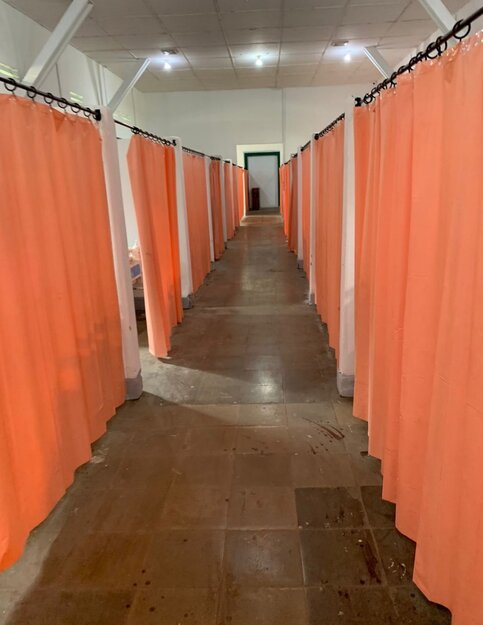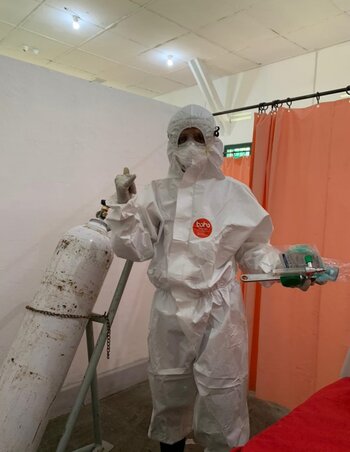UHC2030 is excited to welcome several new and distinguished...
10 May 2022
As part of Universal Health Coverage (UHC) commitment monitoring, we want to tell the real stories of UHC as experienced by people across the globe. This is Aya's story, a university student in West Java, Indonesia.

My name is Aya and I am 21 years old. I am a university student in one of the universities in West Java, Indonesia. When I got infected by COVID-19, my doctor diagnosed me with a digestive system infection and prescribed antibiotics, but when the pain still didn’t get any better, the doctor had to refer me to the hospital to get further treatment.
Access to the hospital was not easy because of the mobility restrictions in the country. Additionally, hospitals in Bandung were over-capacity with COVID-19 patients and could hardly accept new patients. When I finally found a spot at a hospital in Cimahi area (outside Bandung City), the doctors rejected me first assuming that I only suffered from an indigestion. But after my laboratory and PCR tests, I was admitted as a COVID-19 patient in the emergency isolation ward.
The isolation ward was over-crowded, with around 40 patients with severe symptoms, and understaffed with health works, thus services were insufficient. The situation in the ward was getting scary because of patients’ pain screams, which the health workers couldn’t handle. Many patients died there due to lack of oxygen supply.
On Monday, I experienced shortness of breath, for which I only received the required oxygen supply on Friday. Health workers were under a lot of stress. Once a health worker visited my room and cried because she could not bear with the burden of situation.

At last, I was transferred to the government’s recovery centre. The health services provided by the government in the recovery centre were very good - there were available health workers 24 hours a the day. The patients were provided three meal a day and medications. And the most satisfying thing was that the health services were free. After 14 days of isolation in the recovery centre, my condition got better, and the result of my PCR test came back negative. I went back home.
“Give appreciation to the health workers who fight to save the people’s lives despite the unpredictable situation and the lack of Covid-19 medications.”
Throughout my COVID-19 journey, I learned many lessons: Although health services in Indonesia are quite good, the administration process is still complicated and ineffective and the health system needs many improvements. If registration services become digitalized, it can improve access. In my experience, I could only access to health services because of my family’s help. I also learned the importance to give appreciation to the health workers who fight to save the people despite the unpredictable situation and the lack of COVID-19 medications.
Note: This story may have been edited for clarity and shortened for fit on the UHC2030 webpage.
Category: Civil society and communities
